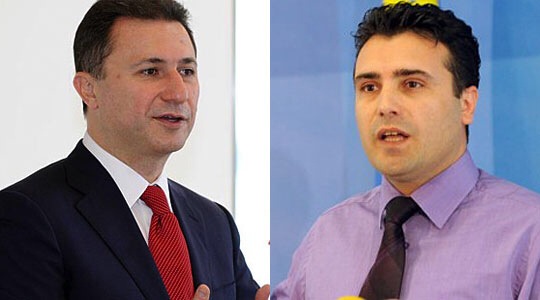
After the sensational and swift arrest of former chief of “Directorate for Security and Counter-Intelligence” (“DBK”) of FYROM Zoran Veruševski and indictment of chief opposition leader, Social Democratic Alliance’s (SDSM) Zoran Zaev, the political destabilization of the country deteriorated rapidly. The alleged charges filed in the police operation named “Puč” („Coup D’ Etat“) suggest a widespread, elaborate plot to overthrow the current regime of FYROM’s Prime Minister Nikola Gruevski, which resulted in charges for Zaev for treason, espionage in “favor of (initially unnamed) foreign country” as well as attempted Coup D’ Etat.
This political crisis caused great concern by variety of global factors, such as European Union, USA and the Russian Federation, all of which voiced concern of great political destabilization and that the governmental approach to such serious charges may provide a further doubt on impartiality of judiciary.
The police action followed the postponing (in author’s opinion an improper approach) of publication of “Bomb of Zaev”, a metaphor used for the several last months for an alleged bundle of documents that prove a wide range of crimes committed by the far-right government of VMRO-DPMNE’s Nikola Gruevski. These events took place in the context of severe escalation of economic situation in Europe’s poorest country, on one hand, and the massive rallies by university students that oppose proposed government interference with the autonomy of the universities as guaranteed by the local laws.
Given that there is a prospect of arrest of opposition leader Zoran Zaev, SDSM, at an urgent meeting held Friday evening (06-II-2015) authorized Zaev unanimously to start publishing the evidence he has starting in the incoming Monday and also establishing a procedure for their publication if Zaev is incapacitated to present them personally. In the conventional media in FYROM, notably TV channels and daily press, over which the government, due to handing-out financial subsidies, has a complete monopoly, the ‘presumption of innocence’ was not observed. Also, “security experts” (some of them seen for the first time in media) originating to circles close to Nikola Gruevski pointed in recent few days “that the Greek secret services tried to orchestrate violent change of government, in order to bring a ‘suitable’ person (alluding to Zaev) for the negotiation process”.
The burden of opposing the undisputed and almost complete autocracy by Nikola Gruevski, the architect of ethnocentric nationalist ideology is now upon Zoran Zaev and SDSM and it remains to be seen what kind of dynamics of events shall emerge from the announcement of the “detonation of the bomb”. The key issue is whether the regime, described by many domestic and foreign observers as, at minimum, an authoritarian one, shall directs its power towards a second wave of using institutionalized violence to preserve its erosion and growing dissatisfaction by the citizens of FYROM.
Vladislav Perunović – correspondent from Skopje, FYROM
